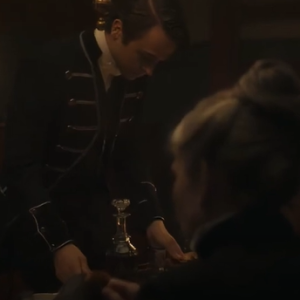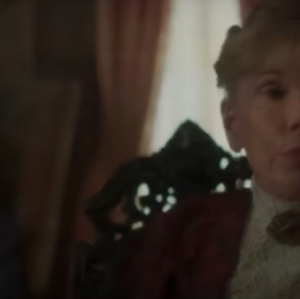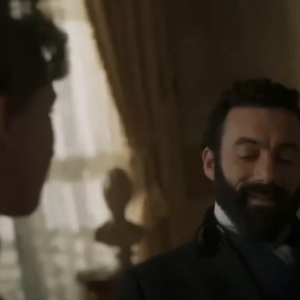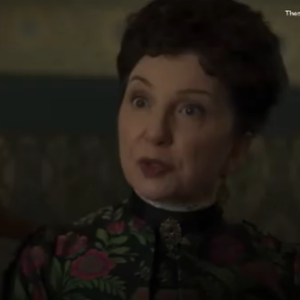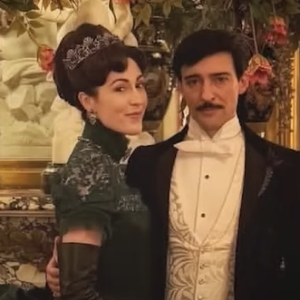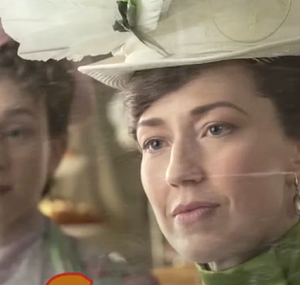The Gilded Age Season 4: Bertha & George’s Divorce in Real Life is a tale that unfolds at the intersection of ambition, wealth, and the fragile certainties of marriage in a world where appearances are everything. As fans have watched Bertha Russell transform into a social force to be reckoned with, the question of whether her bond with George can endure the mounting strain has only grown louder. The relationship between Bertha and George is not simply a marriage between two ambitious individuals; it is a compact forged in the crucible of a rapidly changing society, where power, status, and public perception often eclipse private happiness. In the drama of Season 3, we saw the fissures widen: distance, misunderstandings, and a shared history of striving that sometimes left them nursing resentment rather than reconciliation. The suggestion that George would soften toward Bertha after the shoot or that he might retreat into a more protective, family-centered stance never fully materialized in the narrative—an outcome that has left viewers pondering what the real-life arc might imply for their fate on screen.
To understand the real-life antecedent, it helps to look at the historical parallels that Julian Fellowes and the writers draw upon. Bertha Russell, as the show’s composite version of Alva Vanderbilt Belmont, embodies a woman who used influence, social maneuvering, and a clear-eyed ambition to redefine what it meant to be a powerful wife in late 19th-century America. Alva did not simply inhabit the role society expected of her; she redefined it. She became a catalyst for change, a figure who could channel personal adversity into a broader mission—most notably in her advocacy for women’s suffrage and in crafting a public persona that could weather scandal and still command influence. The show’s interpretation wires this into Bertha’s character, making her both a trailblazer and a source of friction within her marriage. The contrast is stark when we compare the historical record: Alva’s marriage to William K. Vanderbilt was, by all accounts, strained and infrequently stable. William’s affections and attention wandered, and the pressures of public life magnified the tensions that would fuel the eventual divorce. This historical texture provides a rich, if speculative, canvas for Season 4: will Bertha and George mirror those tumultuous dynamics, or will the fiction carve a distinct path that diverges from the documented past?
In the documentary arc surrounding Alva and William, the dissolution of their marriage did not happen in a vacuum. It was a culmination of cultural pressures, personal betrayals, and the social consequences that could ensnare a couple in a gilded cage. When Alva decided to pursue divorce in December 1894, she faced an overwhelmingly punitive social environment. The collapse of a marriage for a woman of her standing carried a heavy stigma—a social ostracism that could extend to her children and her inner circle. Yet the divorce was not merely a personal victory; it was a strategic move that allowed Alva to redefine her own narrative. By obtaining custody of her children and securing a financial settlement, she positioned herself as a matriarch capable of steering not only her destiny but that of her progeny. The aftermath saw a dramatic rebranding of her social capital: the marriage of her daughter Consuelo to the Duke of Marlborough (the Marlborough title) altered the social map, elevating Alva’s standing in a way that endured beyond the dissolution of her union. This is the historical echo that Season 4 could either amplify or reroute: will Bertha’s arc pivot toward a similar reclamation of power after a painful split, or will the series chart a new course that tests the limits of a woman’s agency within the rigidities of Gilded Age society?
What remains most compelling for fans is not merely the possibility of a divorce, but what such a rupture would signify for the broader narrative of The Gilded Age. Bertha’s character embodies a modern reinvention—someone who challenges the status quo from within the very institutions that once sought to contain her. A divorce would function not simply as a rupture in a personal relationship, but as a public experiment in social engineering. It would test Bertha’s capacity to navigate the perilous waters of high society after a fracture in trust and companionship, throwing into sharp relief questions about loyalty, legitimacy, and the price of ambition. The show has already illustrated Bertha’s willingness to shoulder the burdens of leadership—whether that means defending fellow divorcees, or maneuvering through the treacherous politics of the ballroom and drawing rooms. If Season 4 pushes her toward divorce, it could crystallize the paradox at the heart of her trajectory: a woman who can command attention and shape events, yet who must reckon with the personal costs of wielding such power.
Of course, speculation about the path of Bertha and George is inseparable from the show’s fascination with the real-life inspirations behind its characters. The parallel to Alva Vanderbilt Belmont’s life offers a rich interpretive lens, but the series also has the latitude to depart from historical fidelity in meaningful, dramatic ways. The tension between historical veracity and creative reinvention is, in itself, a central drama. The historical Alva did not subscribe to a passive script; she authored a new one. If Season 4 leans into a divorce as a narrative hinge, it could serve as a powerful exploration of how a woman can recast her social destiny even as the old order fights to keep her in place. Conversely, if the writers choose to explore reconciliation or a different form of severance that is less conventional, the show would be reaffirming its commitment to surprising, emotionally resonant storytelling that continues to blur the lines between biography and drama.
As audiences, our curiosity extends beyond the romantic pulse of Bertha and George’s union to what their choices reveal about the era’s moral geometry. The Gilded Age is a study in contrasts: opulence and insecurity, progress and obstruction, emancipation and conservatism. Bertha’s potential divorce would not merely narrate a personal upheaval; it would illuminate a cultural epoch wrestling with its own contradictions. Will a divorce liberate Bertha, allowing her to cultivate influence in new spheres, or will it threaten her standing and isolate her from the very networks that sustain her ambitions? The tension is precisely what makes the prospect so gripping. Whatever direction Season 4 takes, it promises to deepen our understanding of how power, gender, and reputation intersected in a world where every gesture could be read as a declaration of allegiance or defiance. 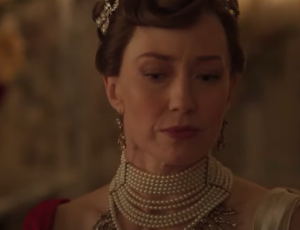
In conclusion, the question of Bertha and George’s fate—whether they will divorce or find a way to mend what time has frayed—resonates with something universal. It speaks to the enduring human drama of love versus ambition, partnership versus independence, and the uneasy balance between private vulnerability and public spectacle. The real-life threads of Alva Vanderbilt’s story offer a potent compass, but The Gilded Age remains unafraid to chart its own course, to bend historical echoes into a narrative that feels immediate, urgent, and deeply human. As Season 4 approaches, fans should brace for a journey that could redefine Bertha’s legacy as surely as it would redefine the couple’s dynamic. After all, in a world built on glittering illusions, the most riveting revelations often come from the courage to choose a path that authenticity demands, even when that path leads away from everything one has built.
